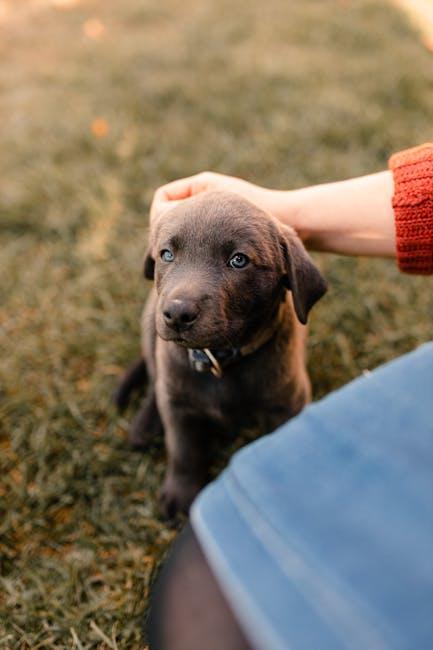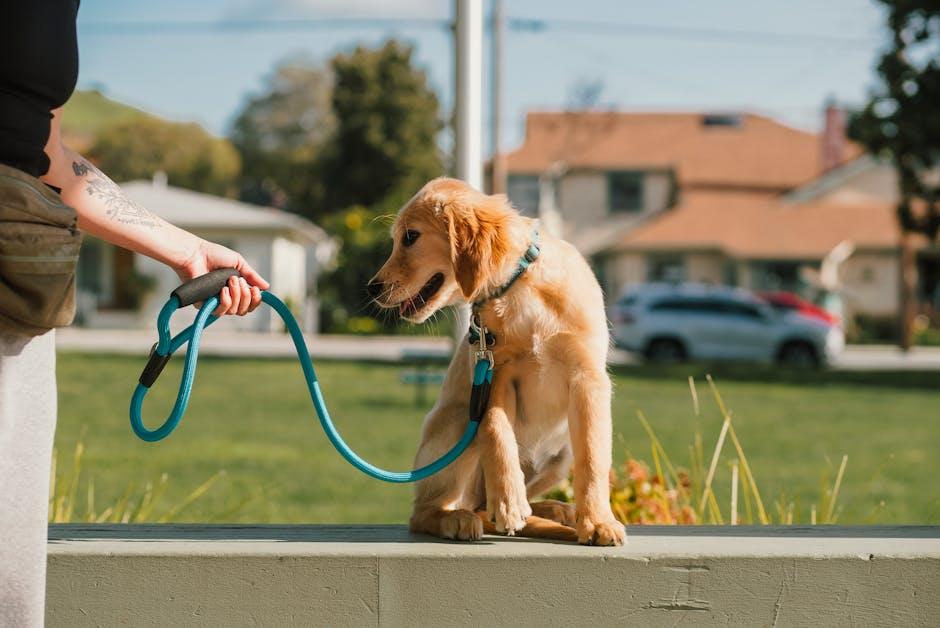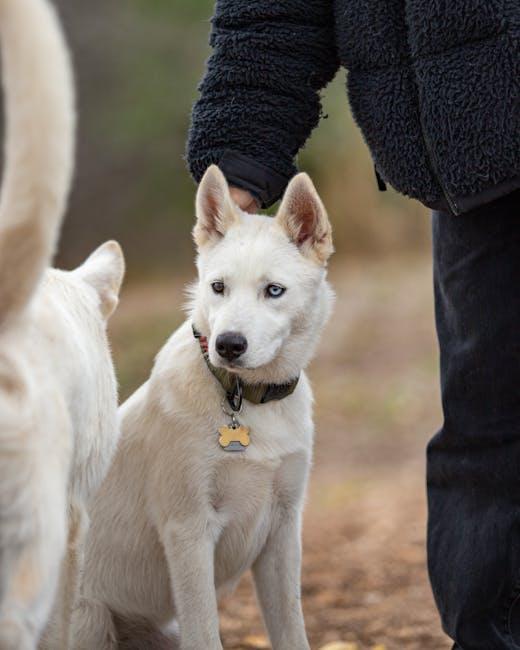Welcoming a new puppy into your home is an exciting and joyful experience, but it also comes with its own set of challenges. One common behavior that many new pet owners encounter is begging, a habit that can be both endearing and exasperating. Whether your puppy is giving you those irresistible puppy-dog eyes at the dinner table or persistently pawing for treats, it’s important to address this behavior early on. In this guide, we will explore the most effective and compassionate techniques to train your puppy to stop begging. With patience, consistency, and a sprinkle of love, you can teach your furry friend to understand boundaries while still feeling cherished and secure. Let’s embark on this rewarding journey towards creating a more harmonious and well-mannered home environment for both you and your puppy.
Encourage Positive Behavior with Consistent Training Techniques
One of the most effective ways to guide your puppy towards better behavior is through consistent and reliable training techniques. Puppies thrive on routine and predictability, and by establishing a clear set of expectations, you help them understand what is acceptable and what isn’t. This consistency is key to reducing unwanted behaviors like begging.
- Establish a Routine: Set regular feeding times and stick to them. This not only helps regulate your puppy’s digestion but also teaches them when to expect food, reducing the likelihood of them begging outside these times.
- Ignore Unwanted Behavior: It’s crucial to not give in to your puppy’s begging. Avoid eye contact, and do not give them food or attention when they are begging. Over time, they will learn that begging does not yield results.
- Reward Good Behavior: Use positive reinforcement to encourage desired behaviors. When your puppy refrains from begging, offer them a treat or affection. This reinforces the idea that good behavior is noticed and rewarded.
By applying these techniques consistently, you create a nurturing environment where your puppy can learn and thrive. Remember, patience and persistence are your best tools in shaping your puppy’s behavior. With time and effort, you’ll find that your furry friend is not just a well-behaved pet, but a delightful companion.
Create a Distraction-Free Environment to Reduce Temptation
When training your puppy to stop begging, it’s crucial to establish a space that minimizes distractions. A serene setting allows your puppy to focus better on learning commands and understanding that begging is not rewarded. Begin by choosing a quiet room in your home where you can control the environment. This space should be free from any food temptations or items that might divert your puppy’s attention.
- Remove any visible food items from countertops or tables. Even the smell can be enough to entice your puppy into begging behavior.
- Keep toys or other distractions out of the area to help your puppy concentrate solely on the training session.
- Use calming background music or white noise to mask any external sounds that might catch your puppy’s attention.
Creating this kind of controlled environment not only reduces the chances of your puppy getting distracted but also reinforces the training process. Consistency is key, so make sure everyone in your household is aware of this setup and maintains the same standards to prevent mixed signals to your puppy.

Use Reward-Based Strategies to Reinforce Good Manners
Incorporating reward-based strategies can significantly enhance your puppy’s learning experience and help curb unwanted behaviors like begging. When your puppy demonstrates good manners, such as staying calm while you eat or refraining from pawing at your legs, offer them a small treat or verbal praise. This positive reinforcement not only encourages them to repeat the behavior but also strengthens your bond.
- Timing is Key: Deliver the reward immediately after the desired behavior. This helps your puppy make a clear connection between the action and the reward.
- Consistency Matters: Ensure everyone in your household follows the same reward-based approach to avoid confusing your puppy.
- Variety in Rewards: Mix up the rewards with treats, toys, or affection to keep your puppy motivated and engaged.
Remember, patience and persistence are essential. Puppies are naturally curious and may take time to understand what is expected of them. By consistently using rewards to reinforce good manners, you’re setting the foundation for a well-behaved companion who knows how to enjoy family meals without being a nuisance.
















